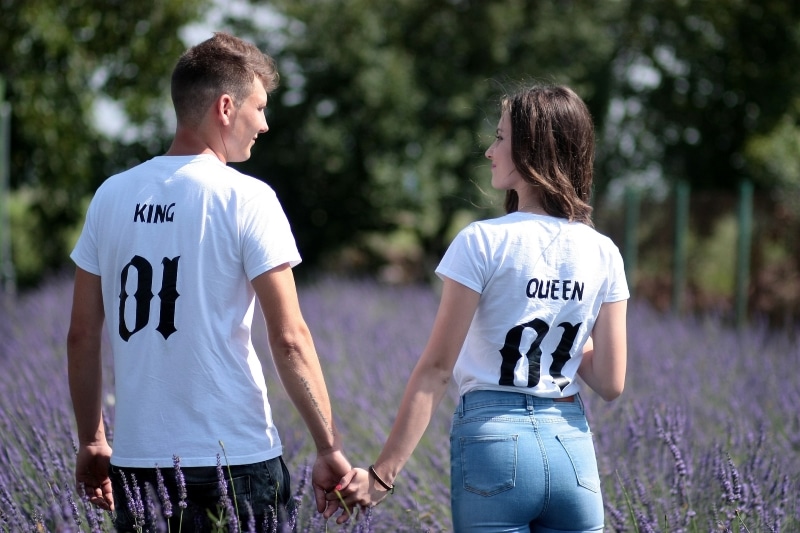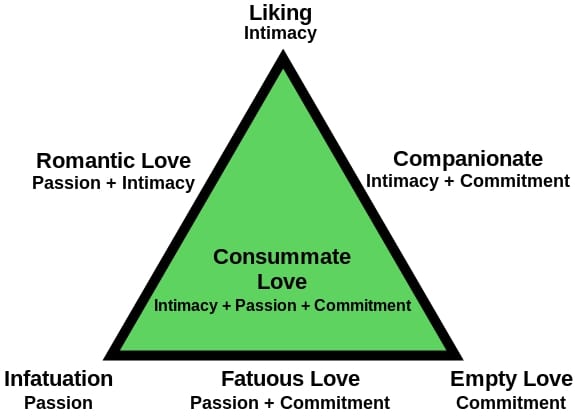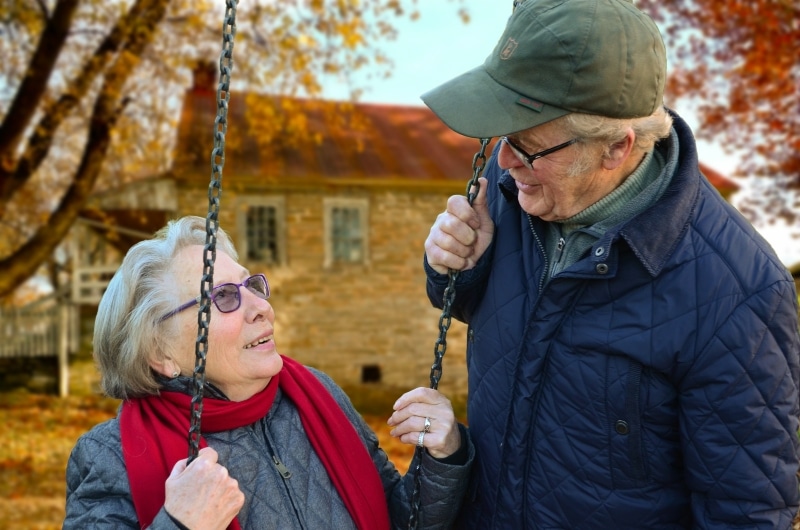Did you know your personal relationship is classified according to where it lies on a triangle? No, not that sort of love triangle. In 1985, psychologist Robert Sternberg, developed a theory on the nature of love. His theory rested on three factors. How these factors combine results in seven ways to love. Where does your relationship lie on the love triangle?

The Three Factors of Love
According to Sternberg, the three factors of love are:
- Passion: a strong feeling of enthusiasm.
- Intimacy: strong bond of familiarity.
- Commitment: a decision to be loyal to, and supportive of, another.
A relationship only requires one of the three elements to be described as love. The kind of love you have depends on where your relationship is located on the triangle.

Public Domain Image
Seven Ways to Love
From the combinations of the three factors we get seven types of love:
- Liking and friendship; intimacy
- Infatuated love; passion
- Empty love; commitment
- Romantic love; passion and intimacy
- Companionate love; intimacy and commitment
- Fatuous love; passion and commitment
- Consummate love; intimacy, passion and commitment.
Seven Kinds of Relationships – Examples
Liking and Friendship
Jake met Lindsey at college. They had a bit of a fling but sensibly concluded that their relationship goals didn’t coincide. Yet, they had discovered a strong intimate element in the relationship. They shared similar tastes and enjoyed the same kind of humor. They stayed good friends sans romance. Once they left college their friendship drifted. Liking and friendship love is intimacy without commitment and passion.

Infatuated Love
Billie and Sam are still at school. Billie writes Sam’s name all over her books and inside her school bag. Billie is passionate about Sam, but Sam hasn’t noticed. He is too focused on his grades and his friends. Billie’s love for Sam feels both painful and beautiful to her. She thinks he is the most perfect human being she has ever seen. Luckily for both of them, it won’t last long and, when she is a little older, she’ll find her true love. Infatuated love is passion without intimacy and commitment.
Empty Love
Sunni and Laesha were betrothed at a young age. They never even met until a month before their arranged marriage. Yet, both committed to making the marriage work. After three years, their relationship changed from empty love to consummate love.
Gina and Trevor had it all. They were completely in love and a hundred percent committed to each other. Soon the kids arrived and there were money problems to deal with. Trevor and Gina knuckled down and got on with it, never once thinking of betraying the other. Over the years their passion faded and intimacy disappeared. One day Gina realized that she only stayed with Trevor because she had made a commitment to do so. Their relationship was now based on empty love. Empty love is commitment without intimacy and passion.
Romantic Love
Orla and Declan got together a week ago. They’ve barely got out of bed since. They sleep in each other’s arms, talk for hours, share childhood memories, and make passionate love. Next week, they’ll have broken up and moved on. Romantic love is passion and intimacy without commitment.
Companionate Love
Frieda and Gert know each other completely. They both think that their marriage is the most important part of their lives. Once upon a time, their relationship was full of romance. Freida remembers all Gert’s romantic gestures with affection. The passion has gone, but they kiss and cuddle all the time and share many moments of cozy intimacy. Companionate love is commitment and intimacy without passion.

Fatuous Love
Darlene and Pete fell in love almost at first sight. They met up and married within two weeks. Their relationship is passionate and they are both ready to commit to each other. Right now, the relationship is driven by determination as much as anything else. The marriage will thrive, as they get to know each other better. Or it will fail as they realize that they share no common ground and they made a mistake. Fatuous love is passion and commitment without intimacy.
Consummate Love
Shana and David appear to be the perfect couple. They often share little intimate moments, catching each other’s eye, or touching each other’s hand. They are getting married next week and are emphatically committed to each other. Neither can imagine ever wanting to be with someone else. They share private jokes and enjoy discovering new things about each other. At the same time, each has his and her own life outside of the relationship. This means that they are constantly bringing in fresh new ideas and experiences. Consummate love is a combination of intimacy, passion and commitment.
Changing Love
According to Sternberg’s Love Triangle, the types of love are categorized neatly. Trouble is, people aren't. Love shifts and changes all the time. Resources and love are stretched to the limit while couples bring up their families. Their relationship could be described as Empty Love. When the children grow up they rediscover each other and Consummate Love returns.
What Does Your Relationship Look Like?
The state of perfect Consummate love may be the goal for many. Others prefer their own unique relationship, with all its good and not-so-good points. For most, the type of love they cultivate is the one that fits in with their feelings, personality and way of living. So who cares which bit of the triangle it occupies?
Lots of couples' relationships are comprised of one committed and one passionate partner. Each brings his or her own gifts to the marriage. And isn’t it the case that each partner will have a different view or perception of the relationship? Nothing can ever be cut and dried in love. It’s as nuanced and complex as lovers themselves are.
In the human experience there are far more than seven ways to love.
Images via Pixabay

